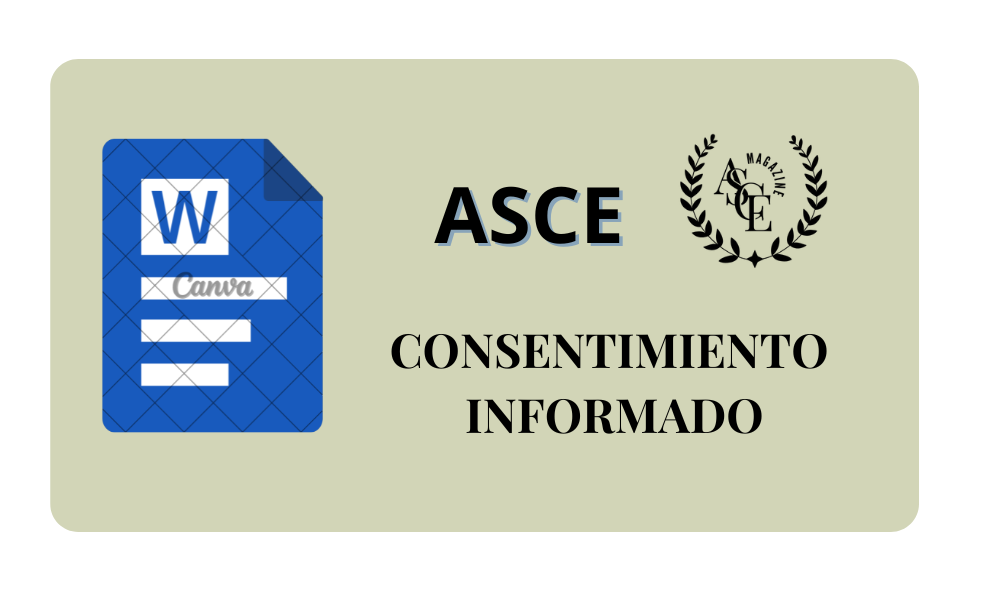Efficacy of technological interventions in improving motivation, engagement and academic performance in high school students: A systematic review
DOI:
https://doi.org/10.70577/ASCE/1025.1043/2025Keywords:
educational technology, student motivation, academic performance, secondary education, pedagogical innovation, active learning.Abstract
The integration of digital technologies in educational processes has gained relevance due to its potential to transform learning, especially in high school students. Despite their increasing implementation, uncertainty persists about the real effectivenessof these tools in improving motivation, engagement and academic performance. Previous studies show mixed results: while some technological interventions increase student interest and participation, others fail to translate into significant improvements inacademic performance. Against this backdrop, the objective of this study was to analyze the effectiveness of technological interventions in strengthening motivation, engagement, and academic performance in elementary school students, through a systematic review of recent scientific literature, following the PRISMA protocol. 16 empirical studies published between 2020 and 2025 were included, which show that the most used tools are gamification, augmented reality, learning dashboards and automated feedback systems. The results indicate consistent improvements in student motivation and participation, mainly when these technologies are integrated with active methodologies and immediate feedback. However, the impact on academic performance varies depending on the socio-educational context, methodological design and teacher mediation. It is concluded that educational technologies have a high didactic potential, but their effectiveness depends on intentional planning and complementary factors that must be considered in future research.
Downloads
References
Abd, M., Norman, M., Zaini, M., Zulnaidi, H., & Nasir, M. (2025). Technological Empowerment in Education: A Systematic Review. SAGE Open, 1–15. https://doi.org/10.1177/21582440251325077 DOI: https://doi.org/10.1177/21582440251325077
Akpen, C. A., & Atobatele, S. (2024). Impact of online learning on student's performance and engagement: a systematic review. Discov Educ , 3, 205. https://doi.org/10.1007/s44217-024-00253-0 DOI: https://doi.org/10.1007/s44217-024-00253-0
Alé, J., & Arancibia. (2025). Emerging Technology-Based Motivational Strategies: A Systematic Review with Meta-Analysis. Educ. Sci., 15(2). https://doi.org/10.3390/educsci15020197
Alé, J., & Arancibia, M. (2024). Emerging Technology-Based Motivational Strategies: A Systematic Review with Meta-Analysis. Technology-Mediated Active Learning Methods), 15(2), 197. https://doi.org/10.3390/educsci15020197 DOI: https://doi.org/10.3390/educsci15020197
Amores, A., Burgos, D., & Branch, J. (2022). Influence of motivation and academic performance in the use of Augmented Reality in education. A systematic review. Frontiers Psychology, 13. https://doi.org/10.3389/fpsyg.2022.1011409 DOI: https://doi.org/10.3389/fpsyg.2022.1011409
Behera, D. (2023). Technological Interventions in Education: An Empirical Review of Their Impact on Learning Outcomes. ALSYSTECH Journal of Education Technology , 1(1), 62-77. https://doi.org/10.58578/alsystech.v1i1.1674 DOI: https://doi.org/10.58578/alsystech.v1i1.1674
Bi, J., Izadpanah, S., & Mohammadi, Z. (2024). Investigating the impact of technology-based education on academic motivation, academic perseverance, and academic self-efficacy in english language learning skills. Educ Inf Technol , 29, 20523–20545. https://doi.org/10.1007/s10639-024-12712-0 DOI: https://doi.org/10.1007/s10639-024-12712-0
Chen, J., & Liang, M. (2022). Play hard, study hard? The influence of gamification on students’ study engagement. Frontiers, 13. https://doi.org/10.3389/fpsyg.2022.994700 DOI: https://doi.org/10.3389/fpsyg.2022.994700
Gómez, G. R., & Marín, J. (2020). La trascendencia de la Realidad Aumentada en la motivación estudiantil. Una revisión sistemática y meta-análisis. Revista de Educación Alteridad., 15(1). https://doi.org/10.17163/alt.v15n1.2020.03 DOI: https://doi.org/10.17163/alt.v15n1.2020.03
Imran, H. (2022). An Empirical Investigation of the Different Levels of Gamification in an Introductory Programming Course. Journal of Education Computing Research, 64(1). https://doi.org/10.1177/07356331221144074 DOI: https://doi.org/10.1177/07356331221144074
Kalissa, R., Misiejuk, K., López, S., Khalil, M., & Saqr, M. (2023). Have Learning Analytics Dashboards Lived Up to the Hype? A Systematic Review of Impact on Students' Achievement, Motivation, Participation and Attitude. Human-Computer Interaction, 23(12). https://doi.org/10.48550/arXiv.2312.15042
Lampropoulos, G., & Kinshuk, G. (2024). Virtual reality and gamification in education: a systematic review. Education Tech Research Dev(72), 1691–1785. https://doi.org/10.1007/s11423-024-10351-3 DOI: https://doi.org/10.1007/s11423-024-10351-3
Lampropoulos, G., Keramopoulos, E., Diamantaras, K., & Evangelidis, G. (2022). Augmented Reality and Gamification in Education: A Systematic Literature Review of Research, Applications, and Empirical Studies. Applied Sciences, 12(13), 6809. https://doi.org/10.3390/app12136809 DOI: https://doi.org/10.3390/app12136809
Lee, J., & Baek, M. (2023). Effects of Gamification on Students’ English Language Proficiency: A Meta-Analysis on Research in South Korea. Sustainability , 15(14), 11325. https://doi.org/10.3390/su151411325 DOI: https://doi.org/10.3390/su151411325
Li, G., Luo, H., Chen, D., Wang, P., Yin, X., & Zhang, J. (2025). Augmented Reality in Higher Education: A Systematic Review and Meta-Analysis of the Literature from 2000 to 2023. Edicational Science, 15(6), 678. https://doi.org/10.3390/educsci15060678 DOI: https://doi.org/10.3390/educsci15060678
Li, L., Hew, K., & Du, J. (2024). Gamification enhances student intrinsic motivation, perceptions of autonomy and relatedness, but minimal impact on competency: a meta-analysis and systematic review. Educational technology research and development, 72, 765–796. https://doi.org/10.1007/s11423-023-10337-7 DOI: https://doi.org/10.1007/s11423-023-10337-7
Marrahi, V., & Belda, J. (2024). Assessing the effect of Augmented Reality on English language learning and student motivation in secondary education. Frontiers, 9. https://doi.org/10.3389/feduc.2024.1359692 DOI: https://doi.org/10.3389/feduc.2024.1359692
Nkomo, L., Daniel, B., & Butson, R. (2021). Synthesis of student engagement with digital technologies: a systematic review of the literature. International Journal of Educational Technology in Higher Education , 18(34). https://doi.org/10.1186/s41239-021-00270-1
Ramírez, J., Vargas, A., & Boude, O. (2024). Impact of gamification on school engagement: a systematic review. Frontiers Education, 9. https://doi.org/10.3389/feduc.2024.1466926 DOI: https://doi.org/10.3389/feduc.2024.1466926
Suraworachet, w., Zhou, Q., & Cukurova, M. (2022). Impact of combining human and analytics feedback on students' engagement with, and performance in, reflective writing tasks. Computers and Society , 1, 28. https://doi.org/10.48550/arXiv.2211.08222 DOI: https://doi.org/10.1186/s41239-022-00368-0
Vieriu, A., & Petrea, G. (2025). The Impact of Artificial Intelligence (AI) on Students’ Academic Development. Educ. Sci., 15(3), 343. https://doi.org/10.3390/educsci15030343 DOI: https://doi.org/10.3390/educsci15030343
Downloads
Published
How to Cite
Issue
Section
License
Copyright (c) 2025 Alexandra Roxana Muñoz Pazmiño , Christian Raúl López Medina , Marco Vinicio Oñate Guevara

This work is licensed under a Creative Commons Attribution-NonCommercial-NoDerivatives 4.0 International License.
Eres libre de:
- Compartir : copiar y redistribuir el material en cualquier medio o formato
- Adaptar : remezclar, transformar y desarrollar el material
- El licenciante no puede revocar estas libertades siempre y cuando usted cumpla con los términos de la licencia.
En los siguientes términos:
- Atribución : Debe otorgar el crédito correspondiente , proporcionar un enlace a la licencia e indicar si se realizaron cambios . Puede hacerlo de cualquier manera razonable, pero no de ninguna manera que sugiera que el licenciante lo respalda a usted o a su uso.
- No comercial : no puede utilizar el material con fines comerciales .
- CompartirIgual — Si remezcla, transforma o construye sobre el material, debe distribuir sus contribuciones bajo la misma licencia que el original.
- Sin restricciones adicionales : no puede aplicar términos legales ni medidas tecnológicas que restrinjan legalmente a otros hacer algo que la licencia permite.
























